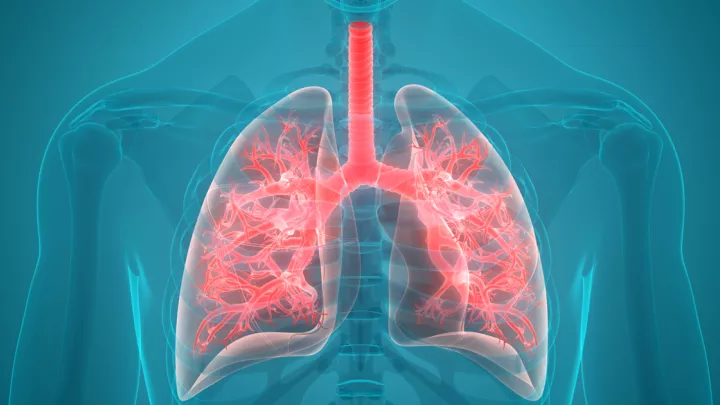Pneumonia: 3 causes, common symptoms and when to seek help

Pneumonia is an illness we hear about often. There's a reason. It is a common disease that causes illness and death worldwide.
If it conjures up thoughts of severe illness, you are right. The symptoms vary from mild fever and cough to severe difficulty breathing and sepsis.
Pneumonia is the second leading cause of hospitalization after childbirth. It is the most common infectious cause of death.
"Pneumonia is an infection of the lungs that causes inflammation and may cause fluid build-up within the tiny sacs of the lungs," says Tammy Wichman, MD, Nebraska Medicine pulmonologist. "It can be caused by a virus, bacteria or a fungus. For healthy individuals, it usually isn't serious if treated early on. However, pneumonia can be quite serious for the elderly, people with weakened immune systems and young children."
What causes pneumonia?
Bacterial pneumonia is commonly caused by streptococcus and mycoplasma bacteria and can develop in hospitalized patients.
Bacterial pneumonia typically requires antibiotics to get better. If it is not treated, it is more likely to progress. Bacterial and viral pneumonia are also highly contagious, another reason to seek evaluation if you think you have something more than the common cold.
Viral pneumonia is often a result of the flu or COVID-19. The symptoms of viral pneumonia are usually milder than bacterial pneumonia and are treated by managing the symptoms. It usually gets better within a few weeks. This is what is often referred to as "walking pneumonia."
Pneumonia is one of the primary reasons why people who develop COVID-19 require hospitalization and ventilator support, says Dr. Wichman. Individuals who are obese or have chronic health problems like diabetes or cancer are more likely to develop COVID-19 pneumonia. It is the primary reason why COVID-19 is fatal for some people.
Fungal pneumonia, the most severe of the three, is rare and can develop very quickly. It can occur among hospitalized individuals who have reduced resistance to infection due to illness and can be fatal.
Who's at risk, and what are the symptoms of pneumonia?
Pneumonia occurs more frequently among:
- Older people
- People with chronic obstructive lung disease
- Those with heart failure, stroke or diabetes
- Those who smoke or overuse alcohol
- People taking certain medicines
Symptoms of pneumonia are very similar to the common cold or flu. Symptoms include:
- Runny nose
- Congestion
- A deep cough that brings up phlegm
- Fever
- Shortness of breath
Although less common, some people will also complain of pain in their chest when they breathe.
How pneumonia is diagnosed
"If you have a deep cough and shortness of breath that is not getting better, you should be evaluated by your doctor," says Dr. Wichman. "Your doctor will start by listening to your lungs for crackling or wheezing. You also will need an X-ray and possibly other testing to determine the type of pneumonia you have."
The bottom line, pneumonia is a serious illness that can become critical if not taken seriously and treated early on. See your doctor if you suspect you may have pneumonia.
"Treatment started early on is very effective," says Dr. Wichman. "If pneumonia progresses, you are more likely to end up in the hospital and require ventilator support. These patients are in critical condition."
Get evaluated. To schedule an appointment with one of our doctors, call 800.922.0000 or schedule online.







